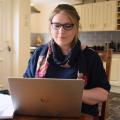
A formal apology has been issued by the Church of England for the “shameful” times LGBTQI+ people have been “rejected or excluded”.
The Bishops of the Church of England have penned a letter admitting LGBTQI+ people have been “failed” at times, but they should be and are “welcome and valued”.
And in Norfolk, the Bishops also released a pastoral letter regarding the proposals, stating the consensus “was not achieved among [us] without difficulty”.

It comes after the church this week said it will bless same-sex civil marriages for the first time but its position on gay marriage will not change and same-sex couples will still be unable to marry at church.
The pastoral letter, published by the Church of England on Friday, January 20, said: “We want to apologise for the ways in which the Church of England has treated LGBTQI+ people – both those who worship in our churches and those who do not.
“For the times we have rejected or excluded you, and those you love, we are deeply sorry. The occasions on which you have received a hostile and homophobic response in our churches are shameful and for this we repent.

“As we have listened, we have been told time and time again how we have failed LGBTQI+ people. We have not loved you as God loves you, and that is profoundly wrong.
“We affirm, publicly and unequivocally, that LGBTQI+ people are welcome and valued: we are all children of God.”
The Bishop of Norwich Graham Usher, the Bishop of Lynn Jane Steen, and the Bishop of Thetford Alan Winton published a joint pastoral letter on the same day.

Of the decision on same-sex marriage, they said it is a bid to “seek the common good” but admitted it will “go too far for some, and others for whom they do not go nearly far enough”.
The plans, to be outlined in a report to the General Synod, will allow same-sex couples to attend church for services including prayers of dedication, thanksgiving and God’s blessing following a legal marriage ceremony.
The synod will be asked to discuss the proposals in detail during its meeting from February 6 to 9, with the main debate on the proposals set for February 8.



Comments: Our rules
We want our comments to be a lively and valuable part of our community - a place where readers can debate and engage with the most important local issues. The ability to comment on our stories is a privilege, not a right, however, and that privilege may be withdrawn if it is abused or misused.
Please report any comments that break our rules.
Read the rules here